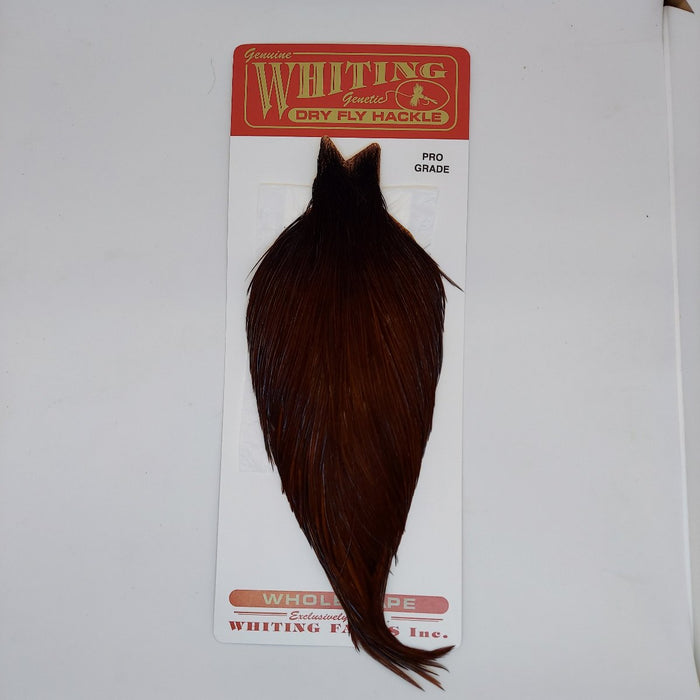
Whiting Farms Pro Grade Cape - Dyed Coachman Brown
FREE SHIPPING ON MOST ORDERS OVER $50
It's our pleasure to offer free and fast shipping on most domestic orders over $50.
With the stiffest, most dense barb count on the supplest of quills, the Whiting line of capes and saddles are the preferred choice of dry fly tiers around the world. This Coachman Brown is perfect for Royal Coachman fly.
The Story
Whiting dry fly capes and saddles, the red label, started it's path of development in the 1950's. Continuous development since then has created a superior line of hackle for the most discerning tiers. The earliest hackle pioneers were Harry Darby and Minnesota attorney Andy Minor. Their stocks were the foundation for almost all genetic hackle lines today. In the mid 1960s Henry Hoffman of Oregon began raising the finest dry fly grizzly in the world. During the 1970s and 80s through the work of pioneers like Hoffman, Hebert and Metz a greater quality and availability of hackle began.
In 1988 Thomas Whiting of Colorado finished his doctorate in poultry science and launched himself into the the world of hackle. Starting with the well known Hoffman dry fly hackle line he also introduced other assorted stocks to broaden the color range and genetic foundation with which to work. In 1997 Tom Whiting purchased the Hebert hackle line to complement the range of products offered by Whiting Farms. Now, after years of careful experimentation and refinement of the genetic selection of hackle stocks the feather products from Whiting farms have risen to new level of quality.
The differences between grades is determined by assessing usable feather length, range of hook sizes, and ultimately the total number of flies that can be tied from the pelt.
Each Cape is carefully evaluated and graded for the following items
- fine supple quills for neat effortless wrapping
- freedom from web for more strength and less absorbency
- uniform barb length for optimal appearance and higher floating flies
- high barb count for more hackle per turn
- high barb strength for maximum support on the water's surface
- a longer sweet spot the area where the prime hackle resides on the feather
- full generous pelts for excellent value and economy
